Queen’s National Scholar in Indigenous Food Sovereignty and Community Health
The property
The School of Kinesiology and Health Studies at Queen’s University invites applications for a Queen’s National Scholar (QNS) position in Indigenous Food Sovereignty and Community Health. The position is a full-time tenure-track/tenured position at Assistant Professor or early Associate Professor rank, with a preferred starting date of July 1, 2024. The QNS in Indigenous Food Sovereignty and Community Health is one of seven QNS being recruited this year in support of Queen’s interdisciplinary Indigenous Studies Program and new major and joint honours in Indigenous Studies. Further information on the Queen’s National Scholar Program can be found on the website of the Office of the Provost and Vice-Principal (Academic) at: https://www.queensu.ca/provost/queens-national-scholars-program.
Applicants must be Indigenous persons with clear and demonstrable ties to Indigenous community(ies). In accordance with the Hiring of Indigenous Specific Positions – Interim Policy, applicants will be required to provide documents confirming their Indigenous identity. Shortlisted candidates will have their identity verified prior to being invited to interview and only applicants whose identities have been positively verified will proceed to the interview stage of the hiring process.
All qualified candidates will be considered; while a complete doctorate is preferred, exceptional candidates in the final stages of their doctoral work are encouraged to apply. Applicants will be encouraged to share qualifications beyond academic credentials, including relevant lived experience and traditional knowledge.
As a Queen’s National Scholar, the ideal candidate will clearly demonstrate three main attributes:
1) Excellence in providing rich and rewarding learning experiences to students; 2) Excellence in developing innovative, collaborative or interdisciplinary research programs that align with Queen’s strategic priorities; and
3) A demonstrated commitment to the principles of Indigenization, equity, diversity, inclusion, anti-racism, and accessibility.Further information on teaching and research priorities at Queen’s is available in the Queen’s Strategy and the Queen’s Strategic Research Plan.
The successful candidate will:
- Provide evidence of high-quality scholarly output that demonstrates potential for independent research leading to peer-assessed publications, community-based knowledge mobilization, or other outputs appropriate to the aims of their research, advocacy work, and career development.
- Provide evidence of, or demonstrate strong potential for, securing external research funding as appropriate to the research goals.
- Provide evidence of, or demonstrate strong potential for, outstanding teaching contributions at both the undergraduate and graduate levels.
- Be willing to teach in the multidisciplinary BA in Indigenous Studies as well as the School of Kinesiology and Health Studies undergraduate and graduate programs. • Provide evidence of an ability to work in a collegial and collaborative manner in an interdisciplinary and student-centered environment.
The Health Studies program at Queen’s is unique in Canada for its interdisciplinary curriculum and emphasis on both qualitative and quantitative research pertaining to health inequities and social justice. We have existing strengths in food and nutrition studies, community-based participatory research with Indigenous communities, critical health promotion, and socio-cultural studies. The successful candidate’s research area will complement these areas. They will also contribute through service to the school, Indigenous Studies, the faculty, the university, and/or the broader community. More information about the School of Kinesiology and Health Studies, including our mission and values can be found here.
It is expected that the successful candidate will contribute to teaching and/or service opportunities within the Indigenous Studies Program in coordination with their home unit(s). Indigenous Studies at Queen’s (INDG) is hosted by the Department of Languages, Literatures, and Cultures and is anchored in language, cultural, and land-based education. The program launched as a minor in 2013 and added a major and joint-honours in 2022 and it features a dynamic and growing list of courses from diverse units across the Faculty of Arts & Science. INDG currently has two Indigenous tenure-track faculty members and is overseen by the Indigenous Studies Program Steering Committee, comprised of faculty, staff, students, and community members. The QNS will join a core of people committed to centering Indigenous knowledges and perspectives as INDG continues to grow and flourish. More information is available at https://www.queensu.ca/llcu/academics/academic-plans/indigenous-studies.
Prior to May 1, 2022, the University required all students, faculty, staff, and visitors (including contractors) to declare their COVID-19 vaccination status and provide proof that they were fully vaccinated or had an approved accommodation to engage in in-person University activities. These requirements were suspended effective May 1, 2022, but the University may reinstate them at any point.
People from across Canada and around the world come to learn, teach and carry out research at Queen’s University. Faculty and their dependents are eligible for an extensive benefits package including prescription drug coverage, vision care, dental care, long term disability insurance, life insurance and access to the Employee and Family Assistance Program. You will also participate in a pension plan. Tuition assistance is available for qualifying employees, their spouses and dependent children. Queen’s values families and is pleased to provide a ‘top up’ to government parental leave benefits for eligible employees on maternity/parental leave. In addition, Queen’s provides partial reimbursement for eligible daycare expenses for employees with dependent children in daycare. Details are set out in the Queen’s-QUFA Collective Agreement. For more information on employee benefits, see Queen’s Human Resources.
Additional information about Queen’s University can be found on the Faculty Recruitment and Support website. Queen’s University is a leading Canadian medical doctoral institution with over 27,000 undergraduate and graduate students. Millions of dollars of support from SSHRC, NSERC and CIHR support leading-edge research across domains of inquiry. The Office of Indigenous Initiatives builds community, advances reconciliation, and integrates Indigenous ways of knowing and being into the fabric and life of the university. Researchers at Queen’s have many existing networks with Indigenous communities and researchers locally and from across Turtle Island. The University is situated on the traditional territories of the Haudenosaunee and Anishinaabe, in historic Kingston on the shores of Lake Ontario. Kingston’s residents enjoy an outstanding quality of life with a wide range of cultural, recreational, and creative opportunities, with access to many natural areas and proximity to vibrant First Nations Communities including Tyendinaga and Akwesasne. Kingston is also home to a vibrant and growing urban Indigenous community, supported by urban Indigenous organizations dedicated to Indigenous cultural revitalization and social support. The city is near Frontenac Provincial Park, the Thousand Islands National Park, and the Frontenac Arch UNESCO World Biosphere Reserve. The Queen’s University Biological Station, north of the city, encompasses 34 km2 of diverse lands, affording premier learning and research opportunities. Visit Inclusive Queen’s for information on equity, diversity and inclusion resources and initiatives.
Queen’s University has developed a Targeted Hiring Policy and Procedure in accordance with guidelines on Special Programs by the Ontario Human Rights Commission. The Targeted Hiring Policy and Procedure will be applied to fill the QNS in Indigenous Studies position.
In accordance with the University’s Employment Equity Program and pursuant to Section 141 of the Ontario Human Rights Code (OHRC), the QNS in Indigenous Studies is open only to qualified individuals who are Indigenous persons with clear and demonstrable ties to Indigenous community(ies). In accordance with the Hiring of Indigenous Specific Positions – Interim Policy, applicants will be required to provide documents confirming their Indigenous Identity. Shortlisted candidates will have their identity verified prior to being invited to interview and only applicants whose identities have been positively verified will proceed to the interview stage of the hiring process. Recognizing the intersectionality of identities within Indigenous communities, applications from Indigenous candidates who also identify as women, persons with disabilities and 2SLGBTQ+ persons will be welcome. All applicants will be invited to self-identify once they have applied; those who wish to be considered under our employment equity provisions are required to self-identify. Self-identification information will be held in confidence by the Human Rights and Equity Office and one member of the hiring committee. All qualified candidates are encouraged to apply; however, Canadians, permanent residents and Indigenous applicants defined under Section 35(2) of the Constitution Act, 1982 will be given priority.
Queen’s Targeted Hiring Policy and Procedure follows the OHRC’s guidelines on Special Programs. The requirement for applicants to be an Indigenous person will assist Queen’s University in addressing the underrepresentation of Indigenous Scholars at the university. Engaging Indigenous scholars will enable Indigenous experiences and community connections to enlighten and enrich the University, academia, and student experiences at Queen’s. It is also an opportunity to correct the historic underrepresentation at Queen’s of Indigenous scholars.
1 Please also note that Under Section 14 of the OHRC, it is not discrimination to put in place a special hiring program if it is designed to:
- Relieve hardship or economic disadvantage
- Help disadvantaged people or groups to achieve, or try to achieve, equal opportunity or
- Help eliminate discrimination
In addition, the impact of certain circumstances that may legitimately affect a nominee’s record of research achievement will be given careful consideration when assessing the nominee’s research productivity. Candidates are encouraged to provide any relevant information about their experience and/or career interruptions.
A complete application consists of:
- a cover letter;
- a current curriculum vitae (including a list of publications);
- a statement of current and future research interests;
- a statement of teaching interests and experience (including teaching outlines and evaluations if available);
- a statement of experience with, and commitment to, facilitation and promotion of Indigenization, equity, diversity, inclusion, anti-racism, and accessibility; and,
Upon successful shortlisting:
- three letters of reference to be sent directly to Dr. Samantha King, skhs.admin@queensu.ca or by hard copy to the address below.
The deadline for applications is November 17, 2023.
Applicants are encouraged to send all documents in their application packages electronically as PDFs to Dr. Samantha King, Director of SKHS at skhs.admin@queensu.ca, although hard copy applications may be submitted to:
Dr. Samantha King
Director
School of Kinesiology and Health Studies
SKHS Building
28 Division Street
Queen’s University
Kingston, Ontario
CANADA K7L 3N6
The University will provide support in its recruitment processes to applicants with disabilities, including accommodation that takes into account an applicant’s accessibility needs. If you require accommodation during the interview process, please contact Katherine Mazurok in the School of Kinesiology and Health Studies, at skhs.admin@queensu.ca.
Academic staff at Queen’s University are governed by a Collective Agreement between the University and the Queen’s University Faculty Association (QUFA), which is posted at https://www.queensu.ca/facultyrelations/qufa/collective-agreements-lous-moas and at http://www.qufa.ca.
Appointments are subject to review and final approval by the Principal. Candidates holding an existing tenure-track or continuing-adjunct appointment at Queen’s will not be considered.

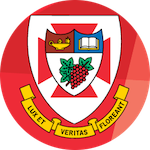

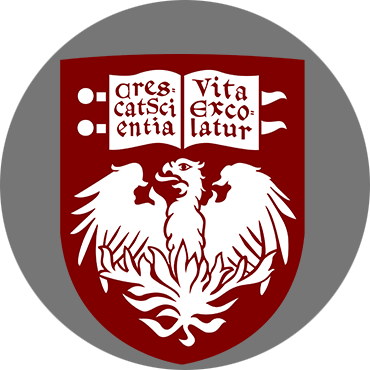

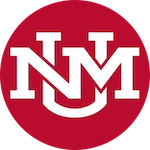
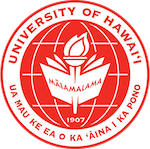
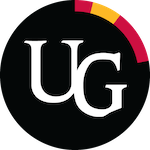
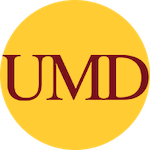
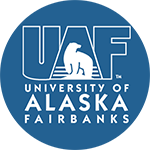
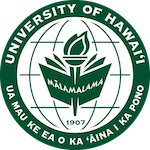
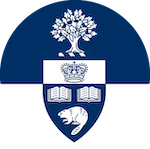
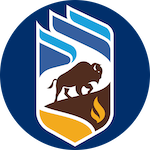
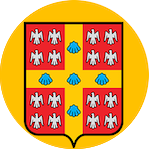
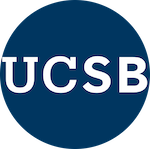





Sorry, the comment form is closed at this time.